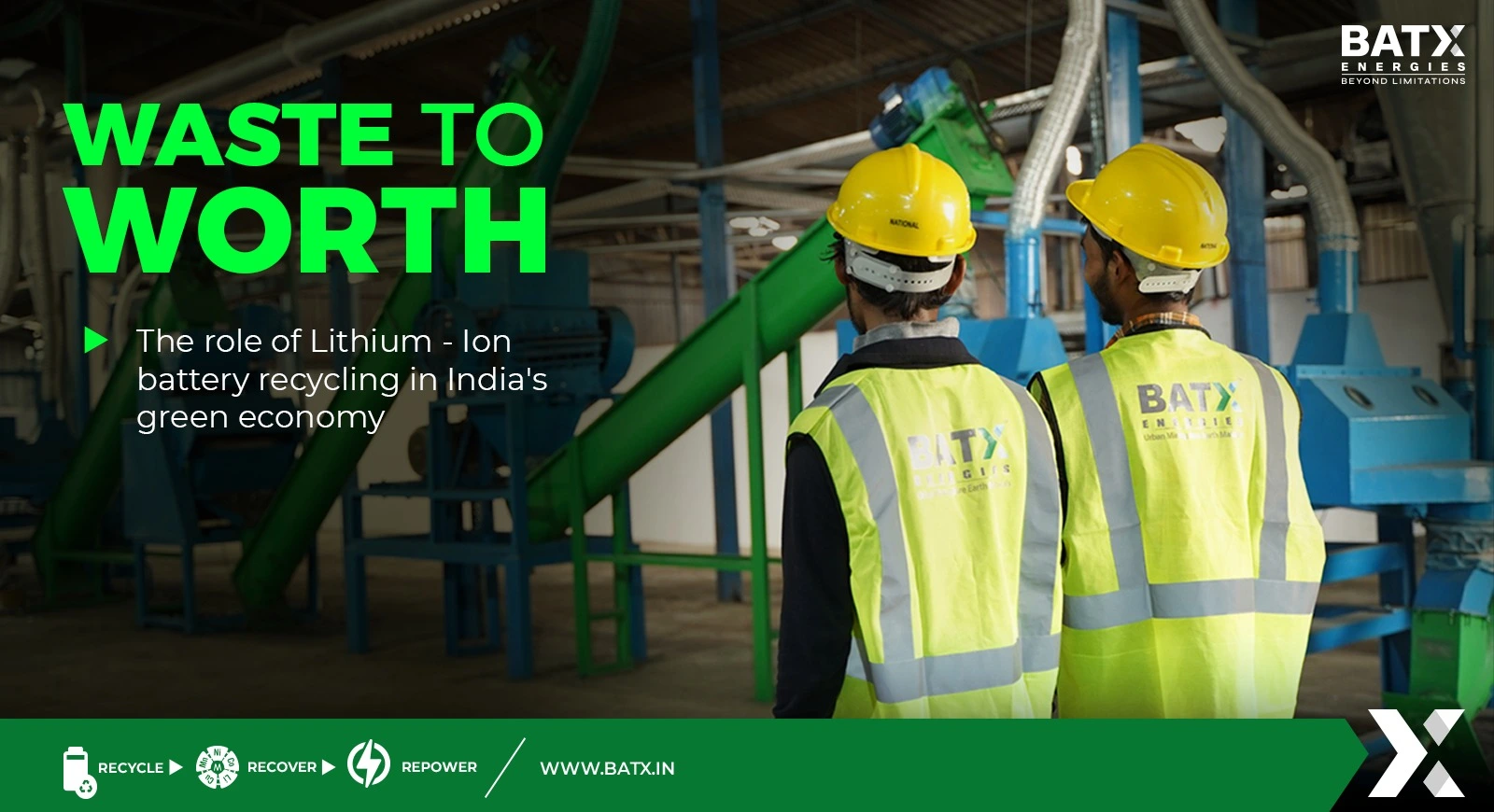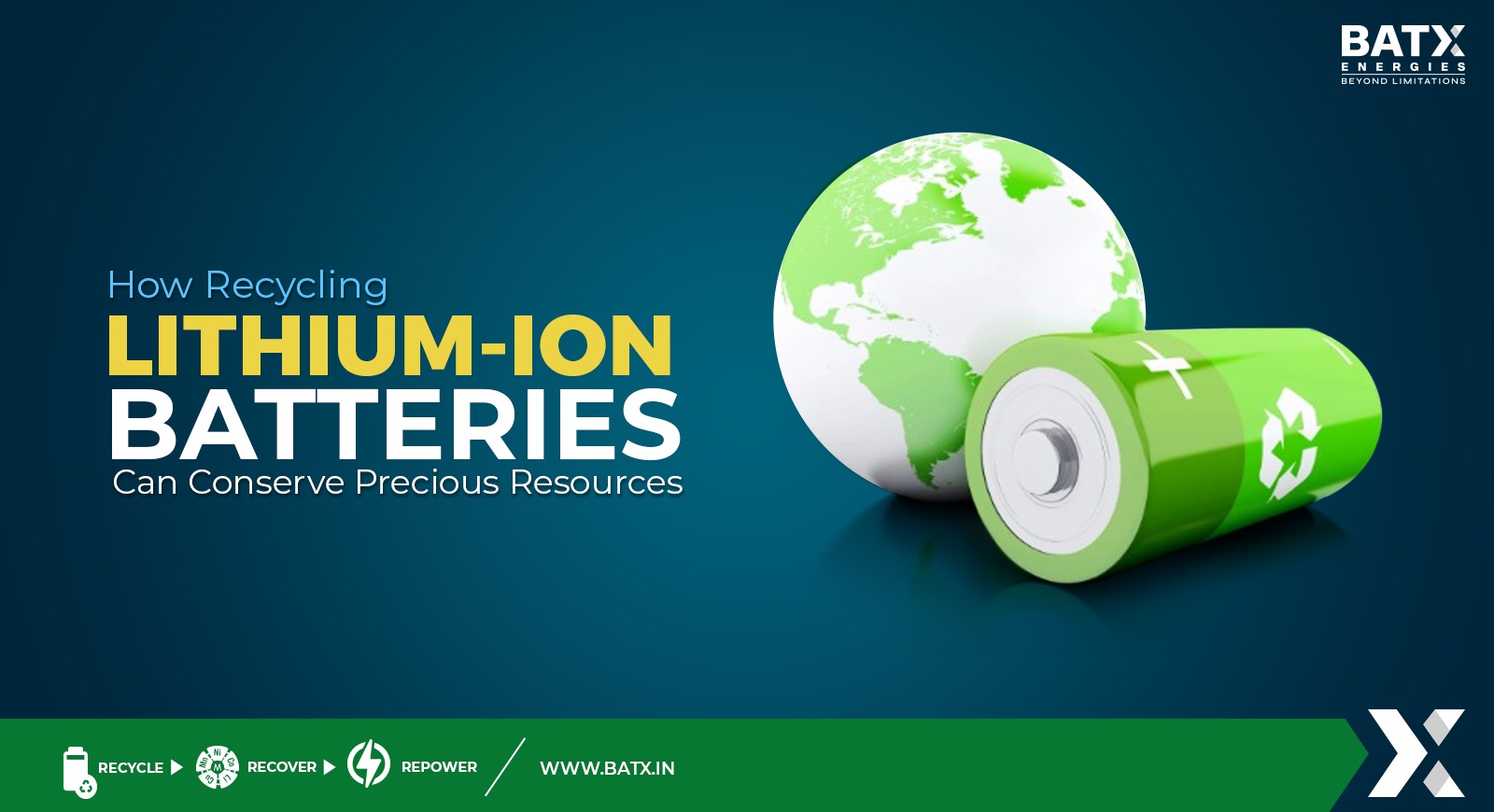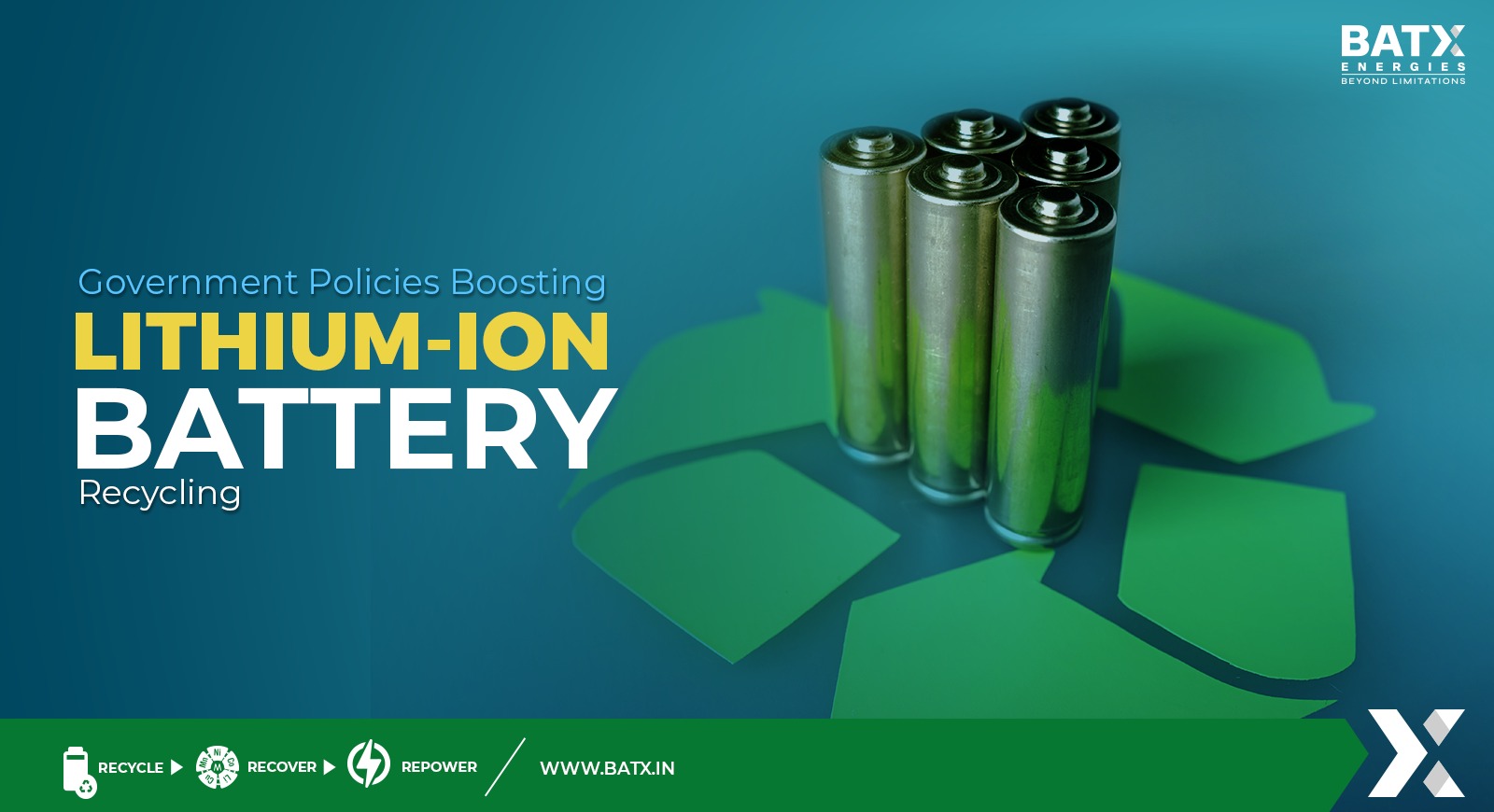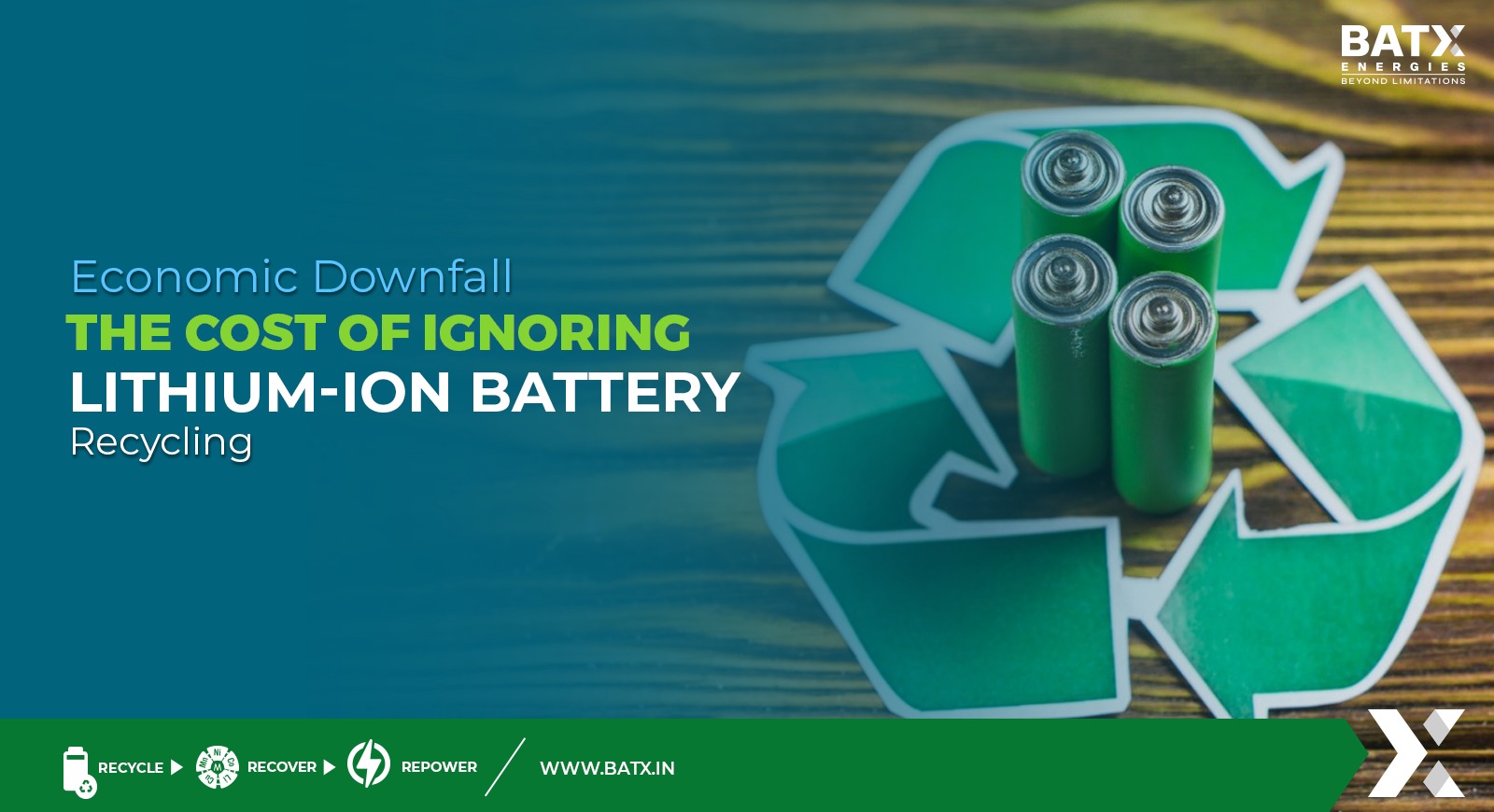The growing awareness of the adverse effects of climate change has pushed the globe towards a greener and more sustainable future. India, too, is on a mission to lower its carbon footprints and surge the proportion of its renewable energy. One of the key components of this strategy is the adoption of EVs. However, with the increase in the adoption of EVs in India, one question remains vital: what about the disposal of their batteries? Many environmental risks are associated with the disposal. And this is precisely where lithium-ion battery recycling comes into play. Let’s dive in to unfold the role of lithium-ion battery recycling in India’s green economy.
The Rising Demand for Lithium-ion Batteries in India
The need for lithium-ion batteries in India is growing as the country moves toward a more environmentally friendly future, increasing the adoption of EVs and energy storage systems, which entirely rely on these batteries. By 2030, the Indian government has set the goal of having 30% of all vehicles on Indian roads to be electric. To achieve this goal, the manufacture and use of lithium-ion batteries must significantly grow. Major corporations in India are aggressively investing in developing lithium-ion batteries to accommodate the very demand. Moreover, expanding renewable energy sources like solar and wind power necessitates using lithium-ion battery-based energy storage devices. These elements have caused the demand for lithium-ion batteries in India to rise significantly.
The Need for Lithium-ion Battery Recycling in India
To comprehend the need for lithium-ion battery recycling in India, it becomes integral to understand that while lithium-ion batteries are valuable when it comes to powering EVs, when a lithium-ion battery reaches the end of its useful life, it becomes e-waste. E-waste improperly disposed of can severely harm the environment, including soil and water contamination and risks to human health, as lithium-ion batteries are host to toxic elements, including cobalt, nickel, and manganese. Hence, the need for proper disposal and recycling of these batteries to minimize environmental impact has surged the need for lithium-ion battery recycling in India.
Benefits of Lithium-ion Battery Recycling in India
Beyond the environmental benefits, recycling lithium-ion batteries offers major economic advantages for India’s green economy. Recycling lithium-ion batteries can help preserve natural resources and lessen the negative effects of e-waste on the environment. The recycling method reduces the need for mining and the exploitation of raw materials by recovering valuable metals from used batteries. Recycling lithium-ion batteries can further generate new employment opportunities, encourage innovation, and promote economic growth.
The Present State of Lithium-ion Battery Recycling in India
The lithium-ion battery recycling business in India is still in its early stages. Still, the Indian government has launched many programs to encourage the recycling of e-waste, including lithium-ion batteries. The government has released rules and regulations to guarantee the secure handling, safe transportation, and recycling of batteries. Furthermore, the government is putting its efforts into encouraging lithium-ion battery recycling in India by providing incentives and subsidies to promote the construction of battery recycling plants nationwide.
Final Words
Lithium-ion battery recycling in India has the potential to significantly alter India’s green economy by lowering waste, preserving resources, and minimizing environmental risks. By encouraging research and development in this area, offering incentives for constructing recycling infrastructure, raising stakeholders’ understanding of the value of recycling and the environmental risks of e-waste, including consumers, producers, and legislators, promoting their engagement, and supporting technical improvements, India can lead the way in sustainable battery management. Hence, with the right policies, actions and investments, lithium-ion battery recycling can help India achieve a sustainable and environmentally friendly future!



